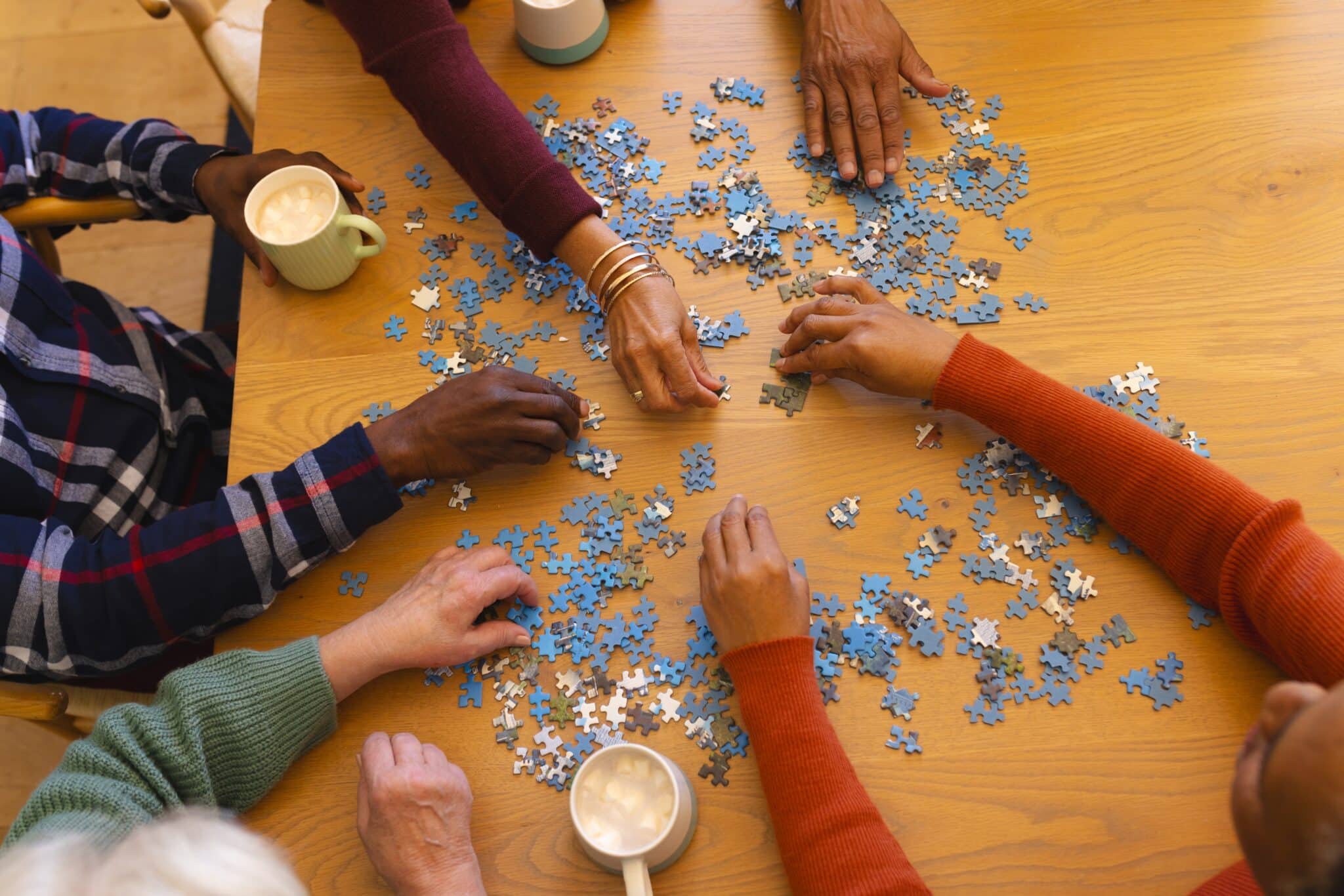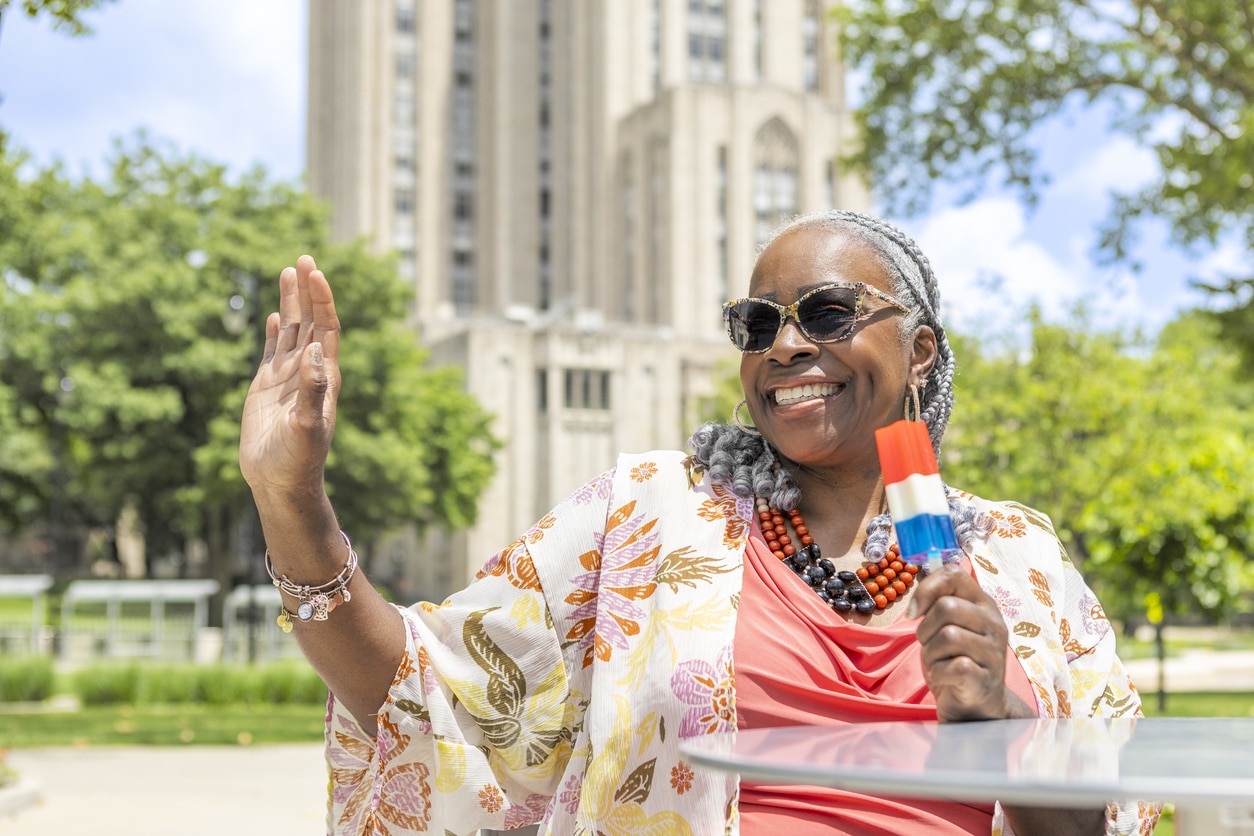LGBTQ+ individuals began publicly “coming out” in the early 1900s, but the modern movement gained momentum after the 1969 Stonewall Riots in New York City. The uprising galvanized LGBTQ+ people nationwide to speak openly about their identities and push for acceptance.
Today, one in ten adults in the U.S. identifies as LGBTQ+, according to the Human Rights Campaign, citing the Gallup Poll. That figure rose from 7.6% in 2024 to 9.3% in 2025, per Gallup’s data. Among older adults, representation is lower but growing. About 3% of the 73 million baby boomers identified as LGBTQ+ in 2024, a number that continues to increase. This trend has created a rising demand for LGBTQ-friendly active adult and senior housing nationwide.
A 2021 report from the UCLA Williams Institute of Law found that San Francisco had the nation’s largest percentage of LGBTQ+ adults at 6.7%. Whether searching for a welcoming place to retire or simply planning an inclusive getaway, several U.S. cities stand out for their LGBTQ-friendly communities.
Hartford, Connecticut
Percentage of LGBTQ+ Adults: 4.6%
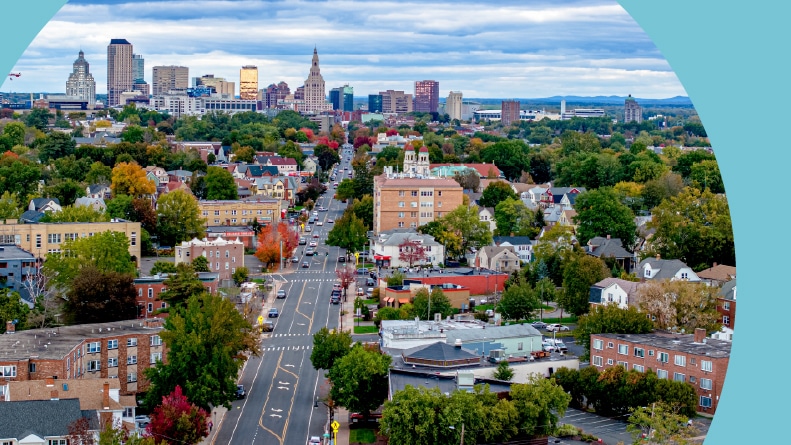
Although Hartford’s total population—about 224,000 in 2024—is smaller than several other cities on this list, its residents are notably supportive of marriage equality and LGBTQ+ inclusion. The City of Hartford has an official LGBTQ+ Commission dedicated to eliminating “bigotry, discrimination, and prejudice” and to studying the “conditions and needs of lesbians, gays, bisexuals, and transgender persons.” Additionally, Visit Connecticut provides resources for LGBTQ+ travelers, including recommendations on where to stay, dine, and attend local events.
55+ Communities in the Hartford Area
- Autumn Estates – Farmington, CT
- Autumn Fields – Enfield, CT
- Bartlett Hill – Portland, CT
- Bartlett Hollow – Middletown, CT
- Beckley Farms – Berlin, CT
- Bidwell Village – Coventry, CT
- Billingsgate – Simsbury, CT
- Bramble Ridge – Suffield, CT
- Castle Heights of Cheshire – Cheshire, CT
- Chimney Hill – Farmington, CT
- Evergreen – Cromwell, CT
- Forest Mews – Avon, CT
- Founders Ridge – Middletown, CT
- Hopmeadow Place – Simsbury, CT
- Newington Ridge Preserve – Newington, CT
- North Woods of Colchester – Colchester, CT
- O’Meara Farm – Farmington, CT
- Shaker Heights – Enfield, CT
- Sonoma Woods – Middletown, CT
- South Pond Village – Bloomfield, CT
- Spring Lake Village – Southington, CT
- The Atrium of Portland – Portland, CT
- The Powder Forest Homes – Simsbury, CT
- The Village at Buckingham – Avon, CT
- The Village at Hunt Glen – Granby, CT
LGBTQ-Friendly Senior Communities in the Hartford Area
Los Angeles, California
Percentage of LGBTQ+ Adults: 5.1%
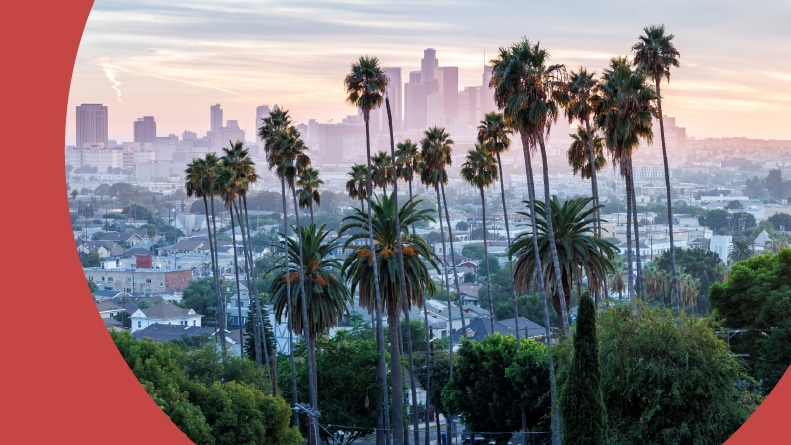
Los Angeles is widely recognized as one of the most LGBTQ+-friendly cities in the country, offering extensive community support through organizations like the Los Angeles LGBT Center, which has served the community for more than 50 years with a broad range of programs and services. The West Hollywood area, in particular, is known for its vibrant LGBTQ+ scene, featuring an array of shops, restaurants, and nightclubs.
55+ Communities in the Los Angeles Area
- Breakwater Village – Redondo Beach, CA
- Courtyard Villa Estates – Torrance, CA
- Lakeshore – Westlake Village, CA
- New Horizons South Bay – Torrance, CA
- Pacific Village – Torrance, CA
- Sol y Mar – Rancho Palos Verdes, CA
- Teramachi Homes – Los Angeles, CA
- Trade Winds – Torrance, CA
- Village Court – Torrance, CA
LGBTQ-Friendly Senior Communities in the Los Angeles Area
Las Vegas, Nevada
Percentage of LGBTQ+ Adults: 5.1%
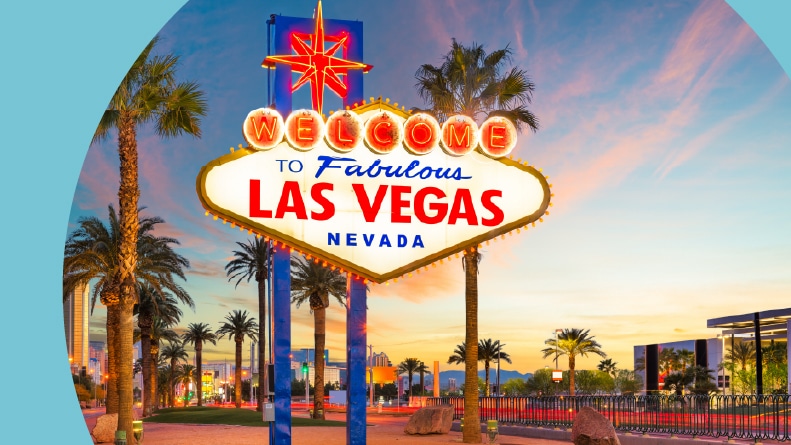
If you enjoy warm weather, Las Vegas might be your ideal getaway or even your next home. Known for its welcoming and inclusive atmosphere, the city offers numerous LGBTQ+ organizations, community centers, clubs, and social hubs. Famous as the “Marriage Capital of the World,” Las Vegas makes it easy for couples to tie the knot with its many quick and convenient wedding chapels. The city fully recognizes same-sex marriages and upholds protections based on sexual orientation, making it an especially inviting destination for the LGBTQ+ community.
55+ Communities in Las Vegas
- Heritage at Stonebridge
- Los Prados
- Promenade at the Meadows
- Quail Estates West
- Rancho Las Brisas
- Regency at Summerlin
- Siena
- Silver Canyon
- Silver Springs Sterling
- Solera at Stallion Mountain
- Sun City Summerlin
- Trilogy in Summerlin
- Trilogy Sunstone
LGBTQ-Friendly Senior Communities in the Las Vegas Area
Austin-Round Rock, Texas
Percentage of LGBTQ+ Adults: 5.9%
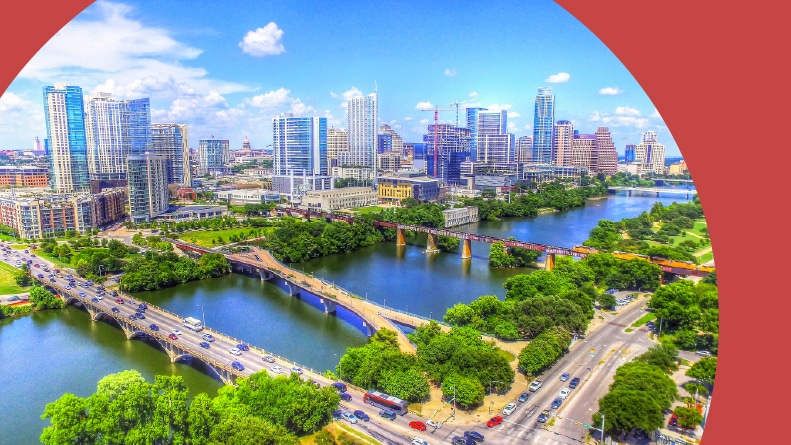
As the capital of Texas, Austin is considered progressive and welcoming to the LGBTQ+ community. Those positive attitudes extend about 20 miles to the north into Round Rock, with both cities enjoying warm summers and mild winters. The City of Austin offers city-level protections, scoring 100 on the Human Rights Campaign Municipal Equality Index.
55+ Communities in Austin-Round Rock Area
- Gardens at Teravista – Round Rock, TX
- Gardens at Verde Vista – Georgetown, TX
- Heritage at Vizcaya – Round Rock, TX
- Heritage Oaks – Georgetown, TX
- Kissing Tree – San Marcos, TX
- Oaks at Wildwood – Georgetown, TX
- Regency at Santa Rita Ranch – Liberty Hill, TX
- Sun City Texas – Georgetown, TX
- Texas Traditions – Georgetown, TX
- Tuscan Village – Lakeway, TX
- Tuscan Village Horseshoe Bay – Horseshoe Bay, TX
- Village Builders at Rancho Sienna – Georgetown, TX
LGBTQ-Friendly Senior Communities in the Austin Area
Orlando, Florida
Percentage of LGBTQ+ Adults: 5%
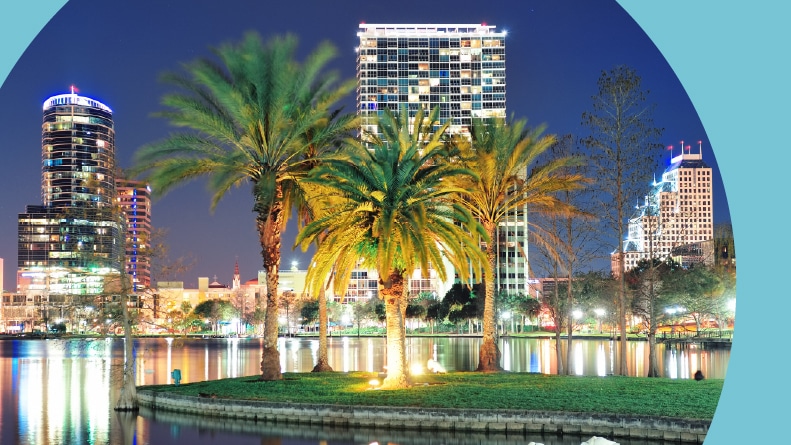
Southern Florida (particularly Miami) has long attracted retirees, especially seasonal “snowbirds.” However, Orlando stands out as one of the most welcoming destinations in Florida for LGBTQ+ seniors. The city has become an increasingly popular retirement choice thanks to its relatively affordable cost of living compared to South Florida, along with a vibrant, inclusive community. Orlando also hosts numerous LGBTQ+ events and celebrations throughout the year, drawing both residents and visitors from across the country.
55+ Communities in the Orlando Area
- Del Webb Oasis – Winter Garden, FL
- Del Webb Orlando – Davenport, FL
- Del Webb Sunbridge – St. Cloud, FL
- Enclave at VillageWalk – Orlando, FL
- Four Seasons at Orlando – Kissimmee, FL
- Gatherings of Lake Nona – Orlando, FL
- High Vista at Ridgewood Lakes – Davenport, FL
- Serenity Reserve – St. Cloud, FL
- Solivita – Kissimmee, FL
- The Lakes at Harmony – Harmony, FL
- Tohoqua Reserve – Kissimmee, FL
- Twin Lakes – St. Cloud, FL
- VillageWalk at Lake Nona – Orlando, FL
LGBTQ-Friendly Senior Communities in the Orlando Area
Portland, Oregon
Percentage of LGBTQ+ Adults: 6%
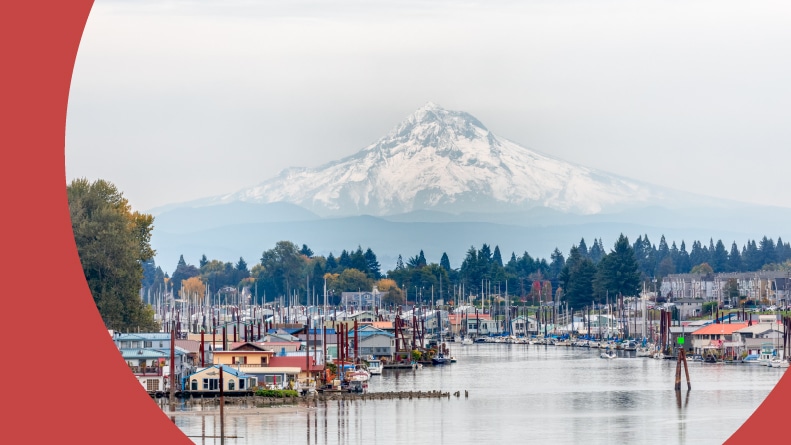
The state of Oregon provides strong protections against discrimination based on sex, sexual orientation, and gender identity for both residents and visitors. According to Travel Oregon, Portland ranks as the second most populous West Coast city for LGBTQ+ residents (second only to San Francisco). Even if you don’t call it home, Portland is a vibrant and welcoming place to visit, offering an inclusive atmosphere and a thriving LGBTQ+ community.
55+ Communities in the Portland Area
- Ceres Gleann – Dallas, OR
- Charbonneau Country Club – Wilsonville, OR
- Claremont – Portland, OR
- Condolea – Lake Oswego, OR
- Eden Gleann – Dallas, OR
- Highlands – Tigard, OR
- King City – Portland, OR
- Salemtowne – Salem, OR
- Summerfield – Tigard, OR
- Summerplace – Portland, OR
- Woodburn Estates & Golf – Woodburn, OR
LGBTQ-Friendly Senior Communities in the Portland Area
San Francisco, California
Percentage of LGBTQ+ Adults: 6.7%
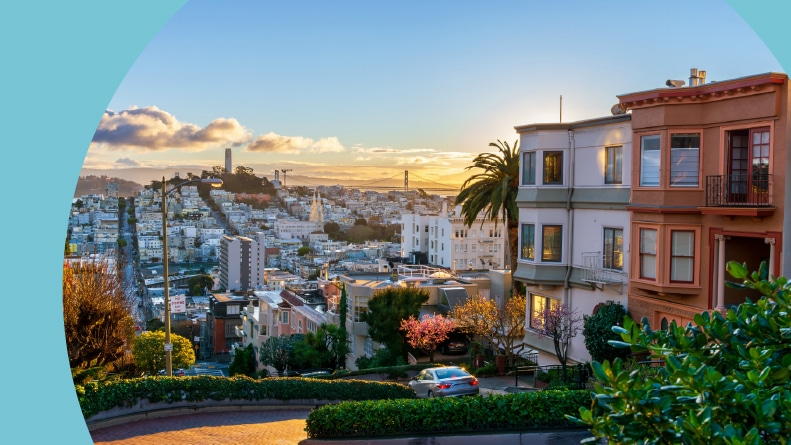
Whether you hope to leave your heart there or spend your golden years in the City by the Bay, San Francisco has long been known for welcoming people of all ages and backgrounds. The city’s Castro District was one of the first neighborhoods in the nation to openly embrace the LGBTQ+ community, and today, much of San Francisco—and its surrounding areas—continue that proud tradition of inclusion and acceptance.
55+ Communities in the Bay Area
- Barcelona – Brentwood, CA
- Bay Village – Watsonville, CA
- Bella Vista Park – Yountville, CA
- Brooks Creek – Windsor, CA
- Buena Vista – Morgan Hill, CA
- Chantarelle – Sonoma, CA
- Clover Springs – Cloverdale, CA
- Connemara – Morgan Hill, CA
- Cottage Green – Morgan Hill, CA
- Creekside Village – Sonoma, CA
- Diamond Grove – Vacaville, CA
- Enclave at Mission Falls – Fremont, CA
- Foster Square – Foster City, CA
- Kindred & Balfour – Brentwood, CA
- Leisure Town – Vacaville, CA
- Liberty – Rio Vista, CA
- Los Gatos Commons – Los Gatos, CA
- Menlo Commons – Menlo Park, CA
- Oakmont Village – Santa Rosa, CA
- Parc Regent Condominium – Los Altos, CA
- Pine Tree Villas – Morgan Hill, CA
- Rancho de Napa – Yountville, CA
- River’s Bend – Healdsburg, CA
- RiverView – Healdsburg, CA
- Rossmoor – Walnut Creek, CA
- Summerset – Brentwood, CA
- Sunny Glen – San Ramon, CA
- Temelec – Sonoma, CA
- The Cottages at Village Green – Gilroy, CA
- The Peninsula Regent – San Mateo, CA
- The Village at Ironwood – Pleasanton, CA
- The Villages Golf & Country Club – San Jose, CA
- Trilogy at Rio Vista – Rio Vista, CA
- Trilogy at the Vineyards – Brentwood, CA
- Trilogy San Juan Oaks – Hollister, CA
- Twin Oaks – Hollister, CA
- Valley Oaks – Gilroy, CA
- Villa Capri – Los Gatos, CA
- Willowbrook – Napa, CA
- Woodland Estates – Morgan Hill, CA
LGBTQ-Friendly Senior Communities in the Bay Area
Additional LGBTQ-Friendly Senior Communities

There are, however, many senior facilities across the U.S. with housing specially aimed for LGBTQ+ seniors. Some examples include:
- Stonewall House offers studio and one-bedroom apartment housing in Brooklyn, NY.
- The Connie House provides assisted living in Boynton Beach, FL.
- Stonewall Gardens is also an assisted living facility located in Palm Springs, CA.
- John C. Anderson Apartments offers pet-friendly apartments for 62+ in Philadelphia, PA.
- Birds of a Feather has vacant lots for sale for those wishing to build in an active, vibrant community located in Pecos, NM.
- Fountaingrove Lodge offers apartments and bungalows, located in California’s wine country, Santa Rosa, CA
Additionally, there are many senior facilities that provide safe, affirming communities, including for LGBTQ+ seniors. Some examples include:
- Kendal at Oberlin is a resident-led, pet-friendly, wellness-focused community for independent living in Oberlin, OH.
- Triangle Square offers one- and two-bedroom apartments in the heart of Hollywood, CA.
- Inspir offers modern senior luxury apartments in Washington, D.C. and New York City.
More Seniors, More Opportunities
The life expectancy within the U.S. continues to rise. In 1964, the last year of baby boomer births, the average life expectancy was 70 years. Today’s average is just above 78 years, according to the Centers for Disease Control. People are living longer, leading to the necessity for more senior residences and senior care.
No matter where in the U.S. you want to live or visit, many areas are becoming more accepting of the LGBTQ+ community, with an increase in availability for senior housing and care across the nation. Explore what’s available or let the experts in 55+ living help you find your dream retirement home. Contact the 55places team today!
FAQ: Best Places for LGBTQ+ People to Retire
1. What makes a city one of the best places for LGBTQ+ retirement?
A great LGBTQ+-friendly retirement city combines strong legal protections, an inclusive community culture, and accessible resources. Cities that rank highly usually have anti-discrimination laws, active LGBTQ+ centers, affirming health care, and plenty of social and recreational outlets that help retirees feel connected and welcome.
2. Which U.S. cities are considered top choices for LGBTQ+ retirees?
Popular options include the San Francisco Bay Area, Portland (OR), Los Angeles, Austin–Round Rock (TX), Las Vegas (NV), and Orlando (FL). These cities combine vibrant LGBTQ+ communities with access to health care, social opportunities, and senior-friendly amenities.
3. How can I tell if a city is LGBTQ+-friendly before moving?
Look at the Human Rights Campaign’s Municipal Equality Index (MEI), which scores cities on LGBTQ+ rights and inclusion. You can also check local LGBTQ+ centers, Pride organizations, or online community groups to get a sense of how welcoming an area truly feels to residents.
4. How do taxes impact LGBTQ+ retirement decisions?
Taxes can make a big difference in retirement income. States like Florida, Nevada, and Texas have no state income tax, while others exempt Social Security and pension income. When comparing states, consider property and estate taxes as well, especially if you plan to leave assets to a partner or spouse.
5. What legal documents are most important for LGBTQ+ retirees?
Ensure you have updated wills, powers of attorney, medical directives, and beneficiary forms. These protect your partner or spouse’s rights in medical and financial decisions and ensure your assets are distributed according to your wishes.
6. How can I identify LGBTQ+-friendly 55+ or senior living communities?
Ask about nondiscrimination policies, staff training, pronoun and name practices, and community programming. Visiting in person, attending a social event, or talking to residents can help you assess the community’s inclusivity firsthand.
7. Are there LGBTQ+ social groups or networks for older adults?
Yes. Organizations like SAGE (Services & Advocacy for LGBTQ+ Elders) and Prime Timers Worldwide offer social, educational, and advocacy programs for LGBTQ+ adults 50+. Many cities also have senior-focused meetups, clubs, and volunteer groups.
8. How can LGBTQ+ retirees balance budget, climate, and safety?
Start by identifying your priorities: affordability, weather, proximity to family, and health care access. Warm inland areas like Orlando, Las Vegas, or Austin offer sunshine and tax advantages, while coastal areas like San Francisco or Portland offer cooler climates and strong LGBTQ+ infrastructure.
9. Where can LGBTQ+ retirees find affirming health care?
LGBTQ+-affirming health care can be found through major hospital systems recognized by the Healthcare Equality Index, local LGBTQ+ community health centers, and national networks like SAGE. Always ask providers about their training and policies for inclusive and gender-affirming care.
10. What’s the best way to decide where to retire as an LGBTQ+ person?
Create a short list of cities that fit your lifestyle and budget, then visit each location to experience the local culture firsthand. Connect with LGBTQ+ centers, attend community events, and talk to local residents. Once you find a city where you feel seen, safe, and connected—you’ve found your perfect retirement destination.


